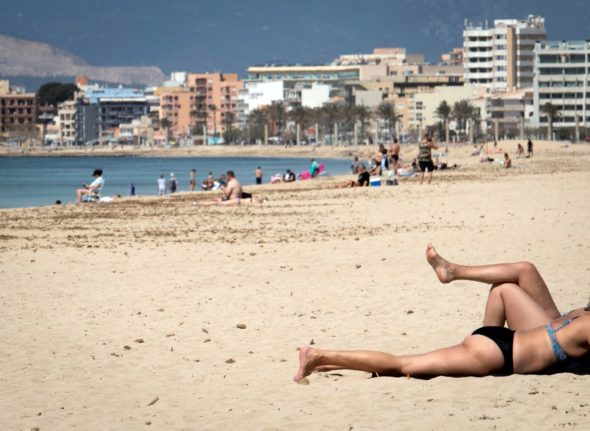All people travelling to Spain currently have to fill in a health control form on the Spain Travel Health website or app, regardless of their age, nationality and the travel requirements they are asked to meet (full vaccination, PCR test, proof of recovery or no requirement).
But what about for travel within Spain?
Does a person driving from Andalusia to the Basque Country have to present any documentation to regional border authorities this summer?
How about if you fly from Madrid to Barcelona, do you need to fill in Spain’s health control form?
The answer to this is that it depends.
For travel within mainland Spain and to the autonomous cities of Ceuta and Melilla, there is no need to fill in Spain’s official health control form, whether you’re flying, driving or travelling by bus or train.
You no longer have to show any documentation justifying your trip and there are no controls at the border as was the case during Spain’s state of alarm, although some municipalities with very high infection rates may impose their own perimeter closures.
The company you’re travelling with may ask you to fill in their own individual health forms, but there are no restrictions on travel within mainland Spain linked to whether you’re fully vaccinated or have a negative PCR to show.
The only slight exception to the rule in Spain’s península is Galicia, where regional authorities on Tuesday asked people travelling from Andalusia, Aragon, Asturias, the Balearic Islands, Cantabria, Castilla y León, Catalonia, the Valencia region, Extremadura, Navarra, the Basque Country and La Rioja to provide them with their contact details and other information through the Galician health website or by calling 881 00 20 21.
Then there’s the case of Spain’s two archipelagos: the Balearic Islands and the Canary Islands.
Both these regions do have restrictions for people travelling from mainland Spain which you can read about in the link below. These regions require people to show proof of vaccination, testing or recovery.
READ MORE: Do I need a Covid test to travel to another region in Spain this summer?
The Balearic Islands also have their own health control form which travellers have to complete before travel to the Mediterranean islands.
In the case of the Canaries, if you’re not fully vaccinated, you have to send the results of your tests to the following address [email protected] or get the lab to do it, but you don’t have to fill in a separate health control form.
It may still be handy to have Spain’s Digital Covid Certificate on your phone if you’ve been fully vaccinated, which you can find out about more below, as some regions have expressed interest in using this as a health pass to access bars, restaurants and other establishments.
READ MORE:



 Please whitelist us to continue reading.
Please whitelist us to continue reading.
Member comments